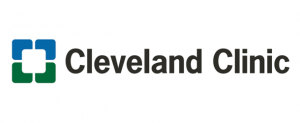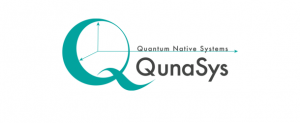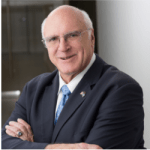Quantum News Briefs October 3: Cleveland Clinic Selected as Founding Partner in Greater Washington, D.C. Quantum Computing Hub; STEM workforce diversity a key part of Australia’s National Quantum Strategy for future growth; 12 Forbes Technology Council members forecast 12 industries to be revolutionized by quantum computing & MORE
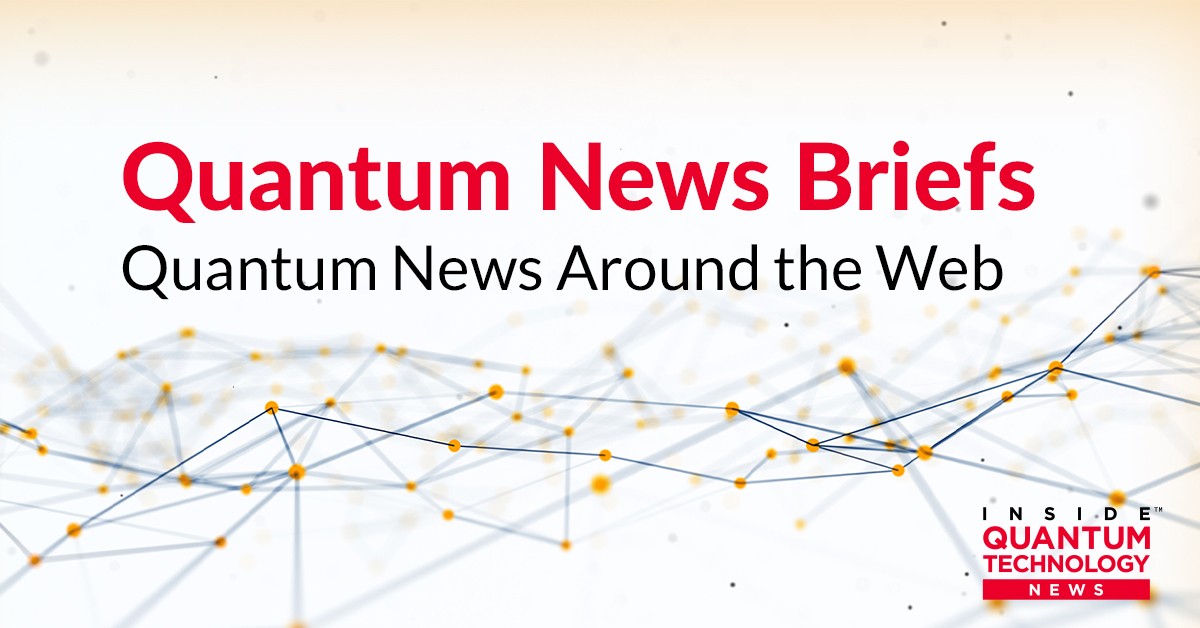
Quantum News Briefs October 3 begins with announcement that Cleveland Clinic has been selected as founding partner in Greater Washington, D.C. Quantum Computing Hub followed by news from Australia on STEM workforce diversity being a key part of Australia’s National Quantum Strategy for future growth and third with 12 Forbes Technology Council members forecast 12 industries to be revolutionized by quantum computing. And even MORE today.
*****
Cleveland Clinic Selected as Founding Partner in Greater Washington, D.C. Quantum Computing Hub
Cleveland Clinic has been selected as a founding partner and the leading healthcare system in the Healthcare Quantum Innovation Hub based in Greater Washington, D.C. to prepare for the burgeoning quantum era and align with key national and global efforts in life sciences and quantum technologies. Quantum News Briefs summarizes the announcement below.
The Hub is part of a new initiative meant to spur collaboration and innovation in the quantum computing industry.
Based in Greater Washington, D.C., Connected DMV and a cross-sector coalition of partners are developing the new Life Sciences and Healthcare Quantum Innovation Hub to prepare the industry for the burgeoning quantum era and align with key national and global efforts in life sciences and quantum technologies.
The U.S. Department of Commerce’s Economic Development Administration (EDA) has awarded more than $600,000 to Connected DMV for development of the Hub. This will include the formation of a collaboration of at least 25 organizations specializing in quantum end-use and technology build.
Cleveland Clinic was invited to join the Hub because of its work in advancing medical research through quantum computing. As the lead healthcare system in the coalition, Cleveland Clinic will help define quantum’s role in the future of healthcare and disseminate education to other health systems on its possibilities. “We believe quantum computing holds great promise for accelerating the pace of scientific discovery,” said Lara Jehi, M.D., M.H.C.D.S., Cleveland Clinic’s Chief Research Information Officer. “As an academic medical center, research, innovation and education are an integral part of Cleveland Clinic’s mission. Quantum, AI and other emerging technologies have the potential to revolutionize medicine, and we look forward to working with partners across healthcare and life sciences to solve complex medical problems and change the course of diseases like cancer, heart conditions and neurodegenerative disorders.”
Last year, Cleveland Clinic announced a 10-year partnership with IBM to establish the Discovery Accelerator, a joint center focused on easing traditional bottlenecks in medical research through innovative technologies such as quantum computing, hybrid cloud and artificial intelligence. The partnership leverages Cleveland Clinic’s medical expertise with the technology expertise of IBM including its leadership in quantum technology which recently resulted in the Breakthrough Award in Fundamental Physics for quantum information science.
George Thomas, Chief Innovation Officer of Connected DMV and lead of its Potomac Quantum Innovation Center initiative. “Quantum has the potential to have a substantive impact on our society in the near future, and the Life Sciences and Healthcare Quantum Innovation Hub will serve as the foundation.
****
STEM workforce diversity a key part of Australia’s National Quantum Strategy for future growth
 The Australian Government has commissioned an urgent report to drive Australia’s National Quantum Strategy but it acknowledges that it will be hamstrung if it can’t succeed with its STEM workforce diversity plans. Quantum News Briefs summarizes below from an October 3 Cosmos article by Ian Mannix
The Australian Government has commissioned an urgent report to drive Australia’s National Quantum Strategy but it acknowledges that it will be hamstrung if it can’t succeed with its STEM workforce diversity plans. Quantum News Briefs summarizes below from an October 3 Cosmos article by Ian Mannix
Misha Schubert points to the non-traditional areas of the Australian population who need to be encouraged into the STEM workforce: women, First Nations people, those from a culturally and linguistically diverse background and people living in our regions.
“Potential workers need to understand that these will be robust jobs of the future. STEM skills are the ultimate problem solver’s skillset, particularly if you want a career that will change the world.”
The 15-person committee, chaired by Australia’s Chief Scientist Dr Cathy Foley AO, will be an integral part of the push to coordinate Australia’s quantum capability across research, industry and government.
Industry and Science Minister Ed Husic wants the strategy by the end of the year.
Late last year, under the Morrison Government, $111m was committed to begin the work the committee is looking at. Recent growth in student numbers has been driven almost entirely by international students.
Numbers of domestic graduates have either stagnated (Natural Sciences), or fallen (Engineering) since 2017. Only Information Technology has seen an increase, but numbers are still far outstripped by international graduates.Dr Foley says attracting and retaining international talent remains central but: “We are not graduating sufficient domestic students with relevant skills. “The tech industries also need skills from the humanities and social sciences, to ensure the regulatory and ethical frameworks are in place, and to have the design and creativity input from the arts. “It is essential that we continue to support a globally connected research sector that welcomes people with talent and ideas. At the same time, we must build domestic capability so that we can realise the transformative potential of the new technologies in our economy and society.”
The “STEM Equity Monitor,” launched in 2020 as part of the Morrison Government’s “Advancing Women in STEM 2020 Action Plan,” was updated this month and will be updated annually until 2029.
CSIRO conservatively estimates quantum technology in Australia could be a $4 billion industry in computing, communications and sensing, creating 16,000 jobs by 2040.
*****
12 Forbes Technology Council members forecast 12 industries to be revolutionized by quantum computing
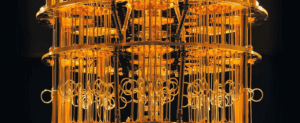 Twelve members of Forbes Technology Council recently discussed some of the industries and focuses that could soon be revolutionized by quantum computing. Quantum News Briefs summarizes the key points from each expert and provides the names and companies of the featured 12 domain experts. Click here for original article.
Twelve members of Forbes Technology Council recently discussed some of the industries and focuses that could soon be revolutionized by quantum computing. Quantum News Briefs summarizes the key points from each expert and provides the names and companies of the featured 12 domain experts. Click here for original article.
1. Pharmaceuticals: Quantum computing is set to revolutionize the pharmaceutical industry, enabling drug and vaccine discovery in days instead of years. Yehuda Naveh, Classiq Technologies
2. Cybersecurity Cyberattacks have become too common, and better security is clearly needed. Raj Yavatkar, Juniper Networks
3. Marketing And Advertising The power of quantum computing is especially helpful in simulation, prediction and optimization scenarios Neerav Vyas, Capgemini
4. AI Training One of the most promising areas that can be affected by quantum computing is the development of artificial intelligence systems. – Ivan Shkvarun, Social Links
5. Financial Services/Investing Quantum will revolutionize financial services by delivering a stronger prediction of trading signals in global markets—helping investors to build resilient portfolios—and by assessing the environmental risks that are key to making sustainable finance decisions. – Jeff Wong, EY
6. Logistics/Supply Chain Management Industries in which optimization technology is currently in use will see a huge uptick in performance with the advent of quantum computing. Eamonn Barrett, Remi AI
7. Healthcare The most beneficial impact of quantum computing on human life may be in healthcare. – Yasin Altaf, GoodCore Software
8. National Security Quantum computing has the potential to play a crucial role in national security—indeed, many countries’ governments are pouring money into quantum computing research projects, in part to improve security. Chintan Shah, Brainvire InfoTech Inc.
9. New Materials Development New material simulation—and, possibly, development—is one of the most direct and important applications of quantum computing. Aleks Farseev, SoMin.ai
10. E-Sports/Gaming Quantum computing could provide the intelligence to assess situations, anticipate outcomes, weight actions and direct gameplay in ways that will revolutionize player performance. – Mark Francis, Electronic Caregiver
11. Real Estate Models based on quantum computing can find use in predicting property prices, mortgage interest rates, housing demand and other trends in the residential and commercial real estate markets for the benefit of homeowners, agents and brokers, lenders, investors, and everyone else. – Peter Abualzolof, Mashvisor
12. Oil And Gas Quantum computing could revolutionize the oil and gas industry by revolutionizing drilling techniques themselves. Leon Gordon, Pomerol Partners
*****
QunaSys Co-organizes Training Workshop on Quantum Computing for Chemistry
QunaSys and the University of Strasbourg launch “Quantum Computing for Chemistry – The Next Revolution,” an intensive five-day industry training event that will be held from Monday, Oct. 24 to Friday, Oct. 28 as part of the QAREER pilot of the EU Quantum flagship’s QTEdu learning ecosystem.
The workshop will be led by instructors from industry and academia specialized in quantum information, quantum chemistry, and experimental and theoretical physics from QunaSys and the University of Strasbourg.The training covers real world examples to help students understand the applicability of quantum computing in the chemistry field. Presented in a modular format, the workshop can be taken as a general overview of quantum computing and its industry applicability, a hands-on coding program to learn quantum computing algorithms and use case development, or as an end-to-end program covering both modules. Following successful completion of the training, students will receive an official certificate.
The training workshop is endorsed Japan’s largest Quantum Practical Application Research Consortium (QPARC) that has retrained more than 170 students from 50 major Japanese corporations and the French Public Quantum Computing Infrastructure aQCess Atomic Quantum Computing as a Service, managed by the French National Research Agency under the Investments of the Future Program (reference ANR-21-ESRE-0032).
“Training the workforce to be quantum-ready is crucial for corporations to be able to embrace the quantum revolution. Chemistry is considered one of the most promising fields for quantum computing advantage and this affects agriculture, aerospace, automotive, consumer goods, electronics, energy, or pharma,” said Tennin Yan, QunaSys CEO.
“Academia and Industry must work together to provide training opportunities in quantum that bridge foundational concepts with real-world practical applications. This is the first step towards unlocking the full potential of quantum computing for chemistry, innovative materials, and beyond,” said Shannon Whitlock, Professor at the University of Strasbourg.
For more information please visit the workshop site, and register here.
*****
NATO Science for Peace and Security Program Projects Examine Security-related
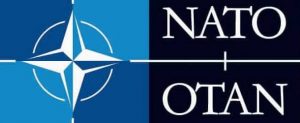 Innovative projects led by scientists in NATO and partner countries are breaking new ground to harness the power of quantum to make communications impossible to intercept and hack. The application of these quantum technologies in the security and defense sectors could help to future-proof the transmission of information, protecting it from increasingly advanced hacking systems and contributing to NATO’s efforts to maintain its technological edge.
Innovative projects led by scientists in NATO and partner countries are breaking new ground to harness the power of quantum to make communications impossible to intercept and hack. The application of these quantum technologies in the security and defense sectors could help to future-proof the transmission of information, protecting it from increasingly advanced hacking systems and contributing to NATO’s efforts to maintain its technological edge.
NATO Science for Peace and Security (SPS) Program research and development projects have been examining the security-related applications of quantum technologies, addressing their three main fields: computing, sensing and communications. Quantum computing and sensing are improving the abilities of computer and remote measurement technologies to levels that they are not traditionally able to achieve. In the field of quantum communications, SPS activities are showing the most promising results. These projects develop systems for the encryption and secure transmission of information using quantum key distribution (QKD) and post-quantum cryptography (PQC). Through these techniques, they respond to rising security concerns related to new technologies – such as quantum computers, which can decipher secret communications – by preventing unauthorized access.
*****
Sandra K. Helsel, Ph.D. has been researching and reporting on frontier technologies since 1990. She has her Ph.D. from the University of Arizona.








